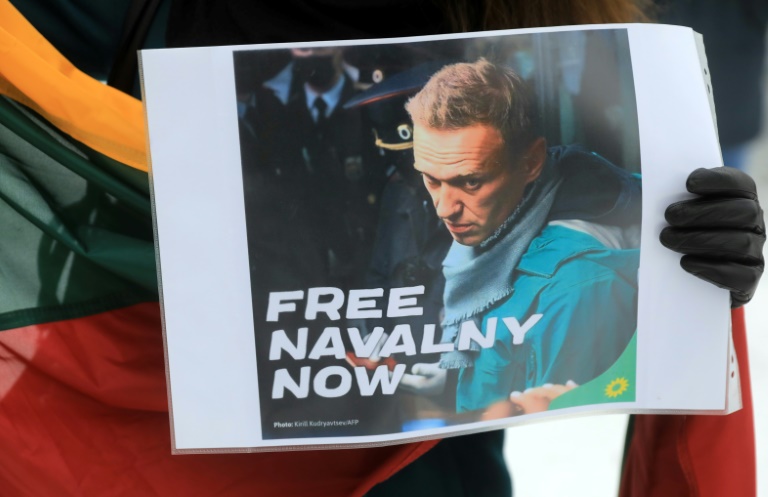
MOSCOW: Russian prosecutors on Monday backed a request to imprison opposition leader Alexei Navalny for several years on old charges, after police detained a record number of anti-Kremlin protesters across the country.
On Sunday, demonstrators defied government warnings and rallied from the Pacific port of Vladivostok to the northwestern city of Pskov in a second weekend of mass protest over the arrest of President Vladimir Putin's most prominent opponent.
The protests, which saw authorities enforce an unprecedented lockdown of the centre of Moscow, came ahead of a high-profile court hearing that could see Navalny imprisoned for several years.
Navalny's detention and the crackdown on protesters has sparked an outcry in the West.
The 44-year-old is facing charges of violating the terms of a 2014 suspended sentence for embezzlement and could be jailed for two-and-a-half years.
The General Prosecutor's Office said in a statement on Monday that it backed a request by the prison service to change the suspended sentence to jail time.
"This motion is considered lawful and justified," the statement said.
Navalny was detained at a Moscow airport in mid-January after flying back to Russia from Germany where he was recovering from an August poisoning.
He blames the attack with the Novichok nerve agent on Putin and the FSB security agency.
- Batons and tasers -
The anti-corruption campaigner is being held in a high-security detention centre and faces years of jail time in several different criminal cases, despite calls from Western governments for his release.
Navalny's team has urged his sympathisers to gather in front of Moscow's Simonovsky district court on Tuesday to show support for the opposition politician.
In recent years, Navalny has served a number of brief jail stints but never a long prison term.
On Sunday, thousands of people rallied across Russia to demand freedom for Navalny and changes to Russia's tightly-controlled political system.
OVD Info, which monitors arrests at opposition protests, said more than 5,300 people had been detained.
Nearly 1,800 people were held in Moscow and almost 1,200 in Saint Petersburg, Russia's second city.
More than 90 journalists were detained, OVD Info said.
Ahead of Sunday's demonstration, authorities locked down the centre of the capital, with hundreds of police lining the streets, central metro stations closed and restrictions on the movements of pedestrians.
Protesters who had hoped to gather outside FSB headquarters were instead scattered to various parts of the city as organisers made last-minute changes in locations.
Protesters and monitors pointed to the police's harsh tactics, saying they used batons and tasers on peaceful demonstrators, and some were badly beaten.
Valery Fadeyev, the head of the Kremlin's human rights council, denounced the rallies as a "provocation".
- 'Path towards trouble' -
But the Saint Petersburg ombudsman said authorities unleashed "essentially a military operation" against protesters and paralysed the city.
"Batons and tasers will not solve existing problems. Violence only breeds intransigence and engenders bitterness," ombudsman Alexander Shishlov said in a statement.
"This is a path towards great trouble. It's time to stop."
Kremlin critics say a concerted effort is under way to silence Navalny's team, dismantle his Anti-Corruption Foundation and pressure his family.
Ahead of Sunday's demonstrations, Navalny's brother Oleg and several key allies including prominent activist Lyubov Sobol were placed under house arrest until March 23 for allegedly violating coronavirus restrictions and calling on people to join protests.
US Secretary of State Antony Blinken on Twitter condemned "the persistent use of harsh tactics against peaceful protesters and journalists by Russian authorities for a second week straight".
On Monday, France urged Germany to scrap the Nordstream II gas pipeline project with Russia in protest at Navalny's detention.
"We have always said we have the greatest doubts on this project in this context," European Affairs Minister Clement Beaune told France Inter radio.
Asked specifically if France wanted Berlin to drop the project, Beaune said: "Indeed, we have already said this."